By David Lawson
This is a falling-down life. It changes, we change, everything changes! Worst of all, we have almost no control over how our life unfolds on a day-by-day basis, and so it becomes essential to learn how to deal with the basic facts of impermanence and no control without resorting to a kind of indifferent resignation. It’s not so easy, is it?
I was diagnosed with stage four lung cancer in October of 2019. When I first received the diagnosis, a fog of deep shock took over. How could this happen? What had I done wrong? Then came anger, disbelief, sadness, and anguish. I started preparing myself to say “good-bye” at that time, believing I had about three months to live. I withdrew.
Withdrawing from life is one way we try to exert control. We look for a space in which we think there is no change or instability, and we think we can find it by running away. But it never works, and the reason it does not work is that in pushing away the things we don’t want, we also push away those things that are good and have served us well. This happens because each of us is connected to all other things in this world as they are connected to each other. Push away one thing, and the rest of the world follows.
How, then, can we learn to deal with the inconvenient truth of impermanence, the instability of all phenomena including ourselves? Well, to start with we can learn how to let ourselves really feel the instability and unreliability of things deep in our bones. We normally understand the instability of life in only a cursory, intellectual way. It rarely occurs to us to look more deeply into the matter. However, with deep-down awareness of our precarious situation in each moment, as well as the ways in which we have caused ourselves pain by trying superficial means to fix it, we learn that rather than being a calamity, this life is beautiful in an unexpected way. And it is beautiful at least partly because of its precariousness and instability. It is also ungraspable.
We tell ourselves that we are going to take hold of life and grab everything we can, but is this really possible and does the project of grasping and holding really make us happy? Unfortunately, part of the reason this strategy never works is that in thinking of life as something we need “to get the most out of,” we separate ourselves from it. Life becomes an object of our desperation. The things we want become carnival prizes, and we believe the carnival barker when he says, “Step right up. This can be yours!” But nothing can ever be really mine because it slips through my fingers even as I try to hold it.
If we live our lives only craving and grasping, we set ourselves up to feel as orphans in the world rather than as part of the web of existence in which there are no forgotten ones, nobody left behind, nothing independent of the flow of life.
When we are honest with ourselves, we see that we have never been able to grab hold of anything that, in itself, could make us feel more complete.
Besides craving for things, we also crave what the Buddha called “becoming.” In practical terms, this can be seen as the impulse to become an “improved” human being, but solely for the purpose of achieving “success” in conventional terms. Looking into the face of death can destroy our painful notions of what it means to be a “success” in this life, and this brings great relief!
There is also a particularly insidious form of craving that the Buddha spoke about, called the desire for extinction. This includes everything we do to ignore the mystery of our experience, the conundrum of being. Craving for extinction can range from simply wanting a thought to go away, all the way to wanting one’s own death. The death wish is especially pernicious because it robs us of the opportunity for peace and true comfort. It blinds us. The main antidote for this state of mind is to simply become aware of it and let the shock of finding it bring greater clarity, without which we may slip into a debilitating numbness of spirit.
We become addicted to the objects of our craving as well as to the craving itself, but what if we could open ourselves to each moment in a way that would merely let it all happen? Could there be just a simple knowing without getting caught in evaluating our experience, which can block our ability to come into this delicate, subtle present moment? When we are constantly judging, evaluating, and comparing, we are merely reacting and creating distance from life and from ourselves.
We have inherited our place in a mysterious universe that at times seems to offer the hope of control and then at the last minute pulls the football out of reach—Lucy’s old trick against Charlie Brown! Then we are caught in a story that says we should have been able to gain control but once again messed up. It seems to never occur to us to simply let go of our obsessive need to kick the football through the uprights. Life is not a game that can be won in a conventional way. Lucy’s never going to hold the ball steady to let us kick a field goal, is she?
For several years, I taught a class based on awareness of death as instructed by the historical Buddha. He said that the awareness of death is the biggest of all meditations, like the footprint of an elephant in the forest. When practiced with diligence, the Buddha taught that it could lead to a complete letting go and profound freedom. In this class, we practiced with becoming aware of the constant flow of time as well as the changes in body and mind with aging and illness. Letting go of the illusion of control is one of the most important life lessons for human beings. It can be very painful to finally acknowledge this essential way that we have been kidding ourselves through strategies of inattention, distraction, and promotion of melodrama in our lives. Turning away from the difficult facts by looking only superficially at our experience does not work, does not bring peace.
One of the best areas in which to clearly see the illusion of control over our lives is in the arena of our relationships with others. We have accumulated lots of unfinished emotional business involving other people and have not been able to “manage” our relationships in ways that we thought possible. We have done and said things that call us to ask for forgiveness and to offer forgiveness to others. However, this is hard work, and we encounter many people in this world who would rather carry hardened emotions and positions all the way to their deathbeds rather than attempt to work them out when they have the opportunity. When we make an effort to forgive and ask for forgiveness, we are giving up our assumed position of control, our claim to a completely independent status in our lives.
In class, we wrote love letters to those we wanted to ask forgiveness of, and many class participants chose to personally visit these people and read the letters to them. We did the same with people in our lives whom we loved but maybe had never told how deeply we felt. People reported in the doing of this that there was a profound sense of letting go. As tears came to both the letter writer and the recipient, a sacred space was opened up for both.
Also in class, we spent lots of time reviewing our lives. Reports from people who have undergone near-death experiences often describe how their entire lives were presented in detail as if on a movie screen. Happily, a panoramic life review prior to actual death can allow a person to spend time with her own behaviors and outcomes as a possible way to make changes and avoid future regret.
We also cling to our love relationships. We hang on to these relationships and fear future problems with them because we think it is possible to definitively “manage” these relationships. But of course, this is just another attempt to control something that is essentially beyond our control. Paradoxically, it is in the letting go of the attempt to “manage” these relationships that we enter a space that allows for the flourishing of a more fulfilling form of love. When we are not holding tightly to a relationship, we find that the love we feel actually grows deeper and broader.
In working with these practices myself, I have found that old fears of death itself are gone. This is especially profound in my case because I maintained a morbid fear of death for the first 30 years of my life. As a child, I often woke up in the middle of the night worried about death, and my mother would come into my room and calm me down with reassurances that the dreaded event was a long way off. This worked, but only until the next evening.
As a young adult, death seemed to be a tragedy, a huge error. I remember taking a class on gross anatomy in medical school (which I later dropped out of) and looking at and dissecting the corpses every day. It was not a comfort to see the body as just an assembly of mechanical parts. The life of the person dissected was gone. Where had she gone? How unfair it seemed that such a person who would choose to donate her life to a medical school had simply vanished. It was easy to see how she was not the body. She was gone, but here was a collection of human tissue, no single part of which was the essence of who she was. Poof! What was the significance of her life? I could not figure it out.
To now find myself not fearing death is such a big deal, and I feel very fortunate about this! Yet what remains is a feeling of sorrow in leaving this world behind—sons, wife, friends, and everything dear to me. I am now learning to let go of even this sorrow by reminding myself that my beloved were never mine. I never owned any of them.
As I see it, this is where humility comes from. Humility knows that we cannot hold ourselves apart from life, nor figure everything out, nor arrange life as we have always wished it to be. Tilopa, the 11th century Indian meditation master, advised that we should let go of past, present, and future. Letting go of past is letting go of the voice that says, “Oh, if only I had eaten better, maybe I would not have cancer.” Letting go of the future is dealing with thoughts such as “Maybe I will die next month” or “Why do I need to leave everything behind?” And letting go of the present is letting go of thinking and ruminating about my circumstances, because when I am just thinking, I have not submitted to the present moment. Just thinking about the present does not bring happiness.
I have also recently taken to asking the question, “If I want to live another day, what do I want to do with that day? What is most important to me now? Do I just want more experiences, more sense pleasures, more things? Or do I want the peace that comes from letting go of all of this? I begin to find that all conventional notions of happiness simply do not sustain me.
In my meditation practice, I see birth and death in every moment. A new, temporary self is born in each moment by grasping onto a form, really anything that we take to be a thing. And death occurs in the moment when a thought vanishes, because we think we are our thoughts. Most beginners in meditation are surprised to find that they are not thinking all the time, but that there are moments between thoughts in which apparently nothing is happening. Seeing the birth and death of a thought in this way is very simple but profound.
Death directly confronts our search for meaning, however we conceive of that. There can be the view that death makes life completely meaningless, but this is a distorted view, in my opinion.
It seems that meaning is not something “out there” that I am meant to discover. Instead, it is something residing internally that is more like a question, a place of sacred mystery and paradox. It whispers to me to pay attention. And when I pay attention, I live in the heart, as the heart.
Related article: A Light Shines Brighter in Darkness
Besides letting go of the illusion of control in our lives, is there anything else that can help the heart deal with the presence of cancer or any other troubling circumstance? Yes, there is. This is the helping of others who are suffering. We can find numerous ways. We can volunteer for organizations, for example, or we can work in smaller ways on our own to express our natural compassion. We just look closely and find out what will be helpful.
There is a kind of magic in this, because it helps remove a mindset of victimhood. When we take care of another person, there is a dawning understanding that if we can do this for others, we can start seeing our own situation in a different light. Helping others turns upside down the human tendency toward self-cherishing attitudes that lead to isolation and pain. When we turn our helping intentions in the direction of others, we become people who are more interested in healing and waking up than people who are only interested in indulging in notions of victimhood. In fact, we now know that cancer patients who are willing to do this report a significant improvement in their physical and mental condition.
In the Tibetan Buddhist traditions, there is a meditation practice that specifically expresses this strategy. It is called Tonglen, which means “sending and receiving.” Anybody can do it. The practitioner starts with bringing attention to the breath. Then, he imagines breathing in hot, smoky air that represents the difficulties another human being is going through. At the same time, he keeps a mental picture of the other person in his attention. On the outbreath, he imagines breathing out cool, clear air representing his own wellbeing that he is offering to the other.
There can be a certain hesitancy to do this practice, partly due to a belief that in breathing in the suffering of another person, the practitioner himself will cause a worsening of his own health. In my experience, this never happens. Instead, as the self-relinquishes its desire to hold onto all the good stuff for itself, there is a release from the way this desire imprisons us. Having offered help to another when we ourselves are sick, we realize that we can heal ourselves in many ways, as well. We find ways to submit to our lives without giving up.
We can also do this practice outside of a formal meditation practice. For example, seeing someone in public having difficulties, we can breathe in that difficulty and breathe out for them our own wellbeing. This stepping down of the ego from its normal “safe” perch brings courage.
I do not know how much longer this body will keep functioning. I’ve already been here longer than I originally expected, and for this I am deeply grateful.
I have decided that I will practice Tonglen at the time of death, extending a form of deep generosity to others for as long as I can. You and I are connected in ways we do not understand, and I will include you, dear reader, in my practice at the end.
We all suffer. May you find peace and comfort. May you be happy, may you come to know that you are loved.
David Lawson passed away on August 31, 2021, the day before we published our fall issue. He had been meditating since 1985, and practicing and teaching Buddhist meditation since 1994. Six years ago, Lawson co-founded the Still Mountain Meditation Center and served as lead teacher for that organization. Still Mountain offers meditation instruction, weekly sittings, discussion, and friendship. An in-depth interview with Lawson appeared as our Cover Story in Issue 61, in 2015. Journal Archive — Crazy Wisdom Community Journal (crazywisdomjournal.com)








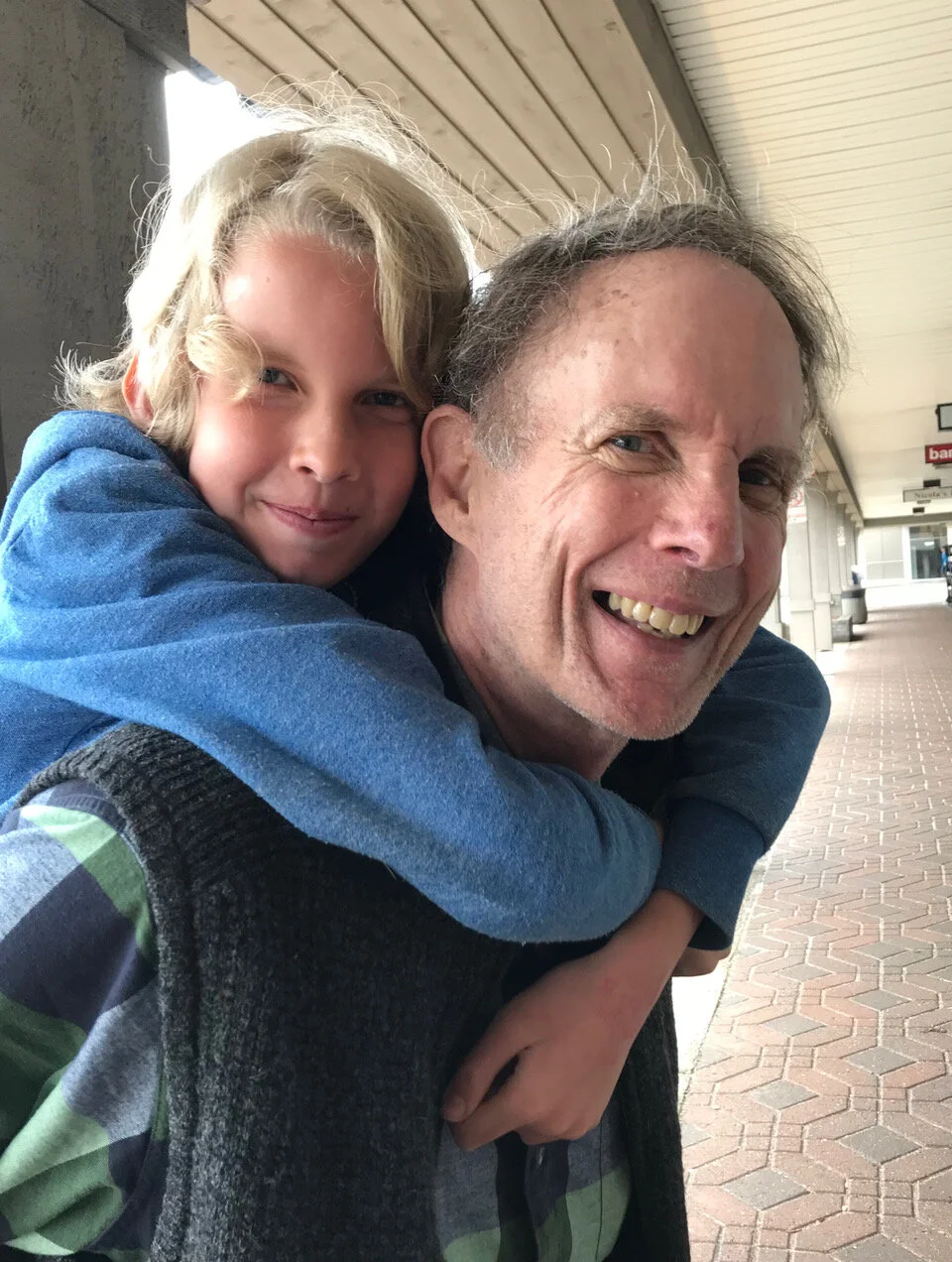


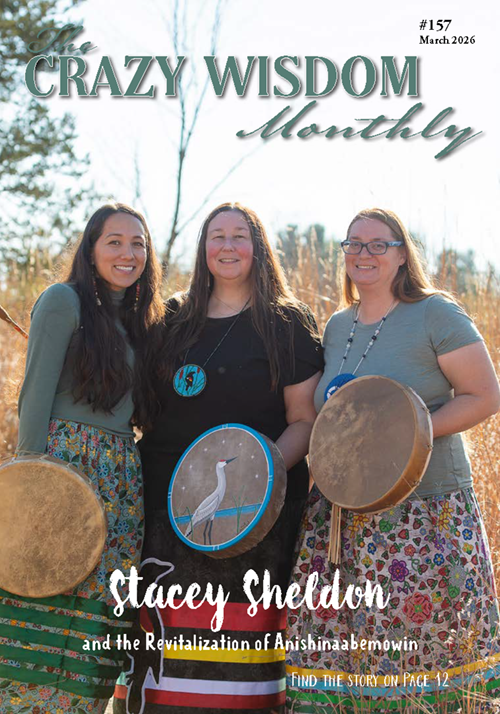




















































































































































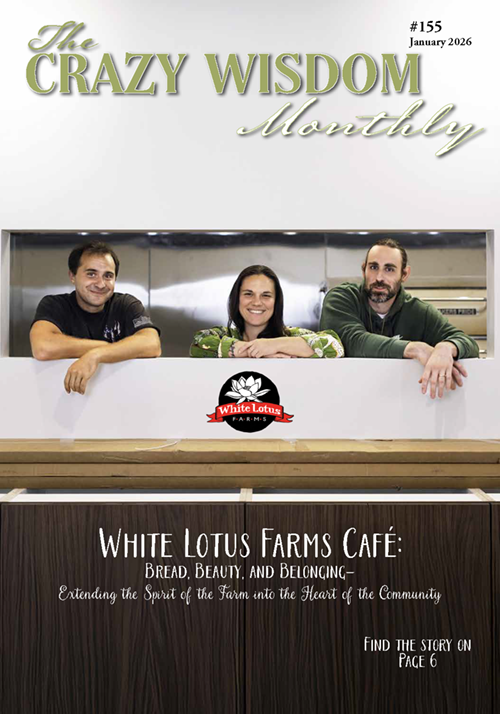
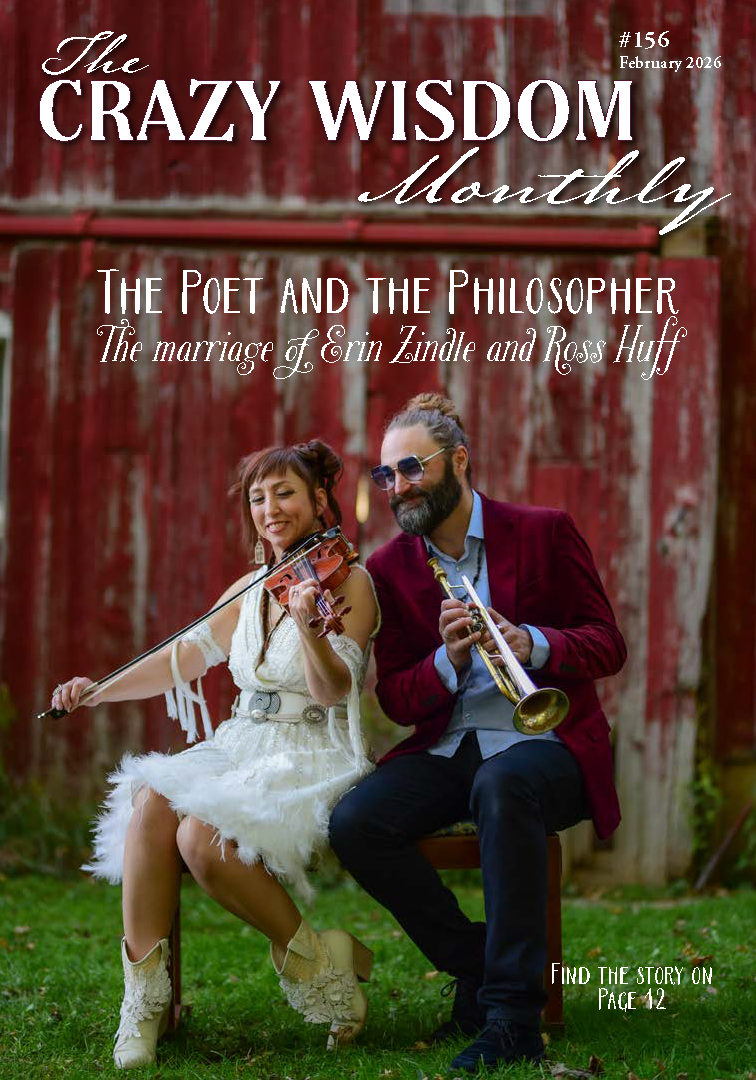









































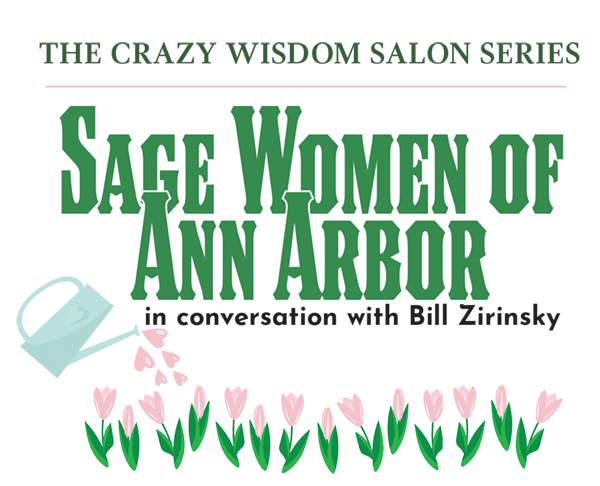

Earlier this year an obituary in The New York Times caught my eye. It was of Clint Hill, who died in February at the age of 93. Hill was the Secret Service agent who, on November 22, 1963, immediately after President Kennedy was shot, jumped on the back of the presidential limousine and shielded the President and First Lady Jacqueline Kennedy with his body as the motorcade sped from Dealey Plaza to nearby Parkland Memorial Hospital.